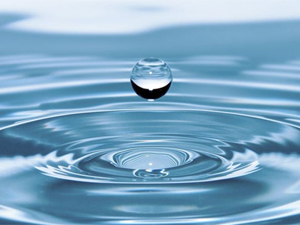



Date:14/02/17
 It only takes a few exploding phones to realize that we live in a compromise – lithium-ion batteries, the most used kind of battery today, are both potentially dangerous and not nearly long-lasting enough. While there are numerous projects currently underway hoping to solve these problems, none of them are close to becoming reality, due to the long and expensive reality of scientific research.
It only takes a few exploding phones to realize that we live in a compromise – lithium-ion batteries, the most used kind of battery today, are both potentially dangerous and not nearly long-lasting enough. While there are numerous projects currently underway hoping to solve these problems, none of them are close to becoming reality, due to the long and expensive reality of scientific research.
Even with that in mind, however, the latest development in battery technology is still rather exciting – researchers from Harvard have prototyped a battery that is both non-toxic and longer-lasting than any lithium-ion solution available right now. The so-called "flow battery" is based on organic molecules in a neutral pH water solution, and is expected to last more than 10 years, which is a vast improvement over current battery tech.
This isn't the first flow battery to be developed, but rather it fixes many of past designs' problems, such as excessive capacity degradation with usage. The researchers achieved that by modifying the structures of the molecules used in the electrolyte solutions, and making them water soluble. As a result, the batteries become non-corrosive and cheaper to produce, making them an ideal candidate for industrial uses, such as storing wind and solar energy.
While this prototype aims to be a solution to the lithium-ion battery problem on a larger scale, it's still indicative of what's to come in the near future. Consumer devices nowadays require more power than ever, and development on that front is sure to come eventually, so here's hoping we're seeing the last wave of phone batteries lasting just a couple of years.
The battery of the future will be water-based
 It only takes a few exploding phones to realize that we live in a compromise – lithium-ion batteries, the most used kind of battery today, are both potentially dangerous and not nearly long-lasting enough. While there are numerous projects currently underway hoping to solve these problems, none of them are close to becoming reality, due to the long and expensive reality of scientific research.
It only takes a few exploding phones to realize that we live in a compromise – lithium-ion batteries, the most used kind of battery today, are both potentially dangerous and not nearly long-lasting enough. While there are numerous projects currently underway hoping to solve these problems, none of them are close to becoming reality, due to the long and expensive reality of scientific research.Even with that in mind, however, the latest development in battery technology is still rather exciting – researchers from Harvard have prototyped a battery that is both non-toxic and longer-lasting than any lithium-ion solution available right now. The so-called "flow battery" is based on organic molecules in a neutral pH water solution, and is expected to last more than 10 years, which is a vast improvement over current battery tech.
This isn't the first flow battery to be developed, but rather it fixes many of past designs' problems, such as excessive capacity degradation with usage. The researchers achieved that by modifying the structures of the molecules used in the electrolyte solutions, and making them water soluble. As a result, the batteries become non-corrosive and cheaper to produce, making them an ideal candidate for industrial uses, such as storing wind and solar energy.
While this prototype aims to be a solution to the lithium-ion battery problem on a larger scale, it's still indicative of what's to come in the near future. Consumer devices nowadays require more power than ever, and development on that front is sure to come eventually, so here's hoping we're seeing the last wave of phone batteries lasting just a couple of years.
Views: 480
©ictnews.az. All rights reserved.Similar news
- Azerbaijani project to monitor disease via mobile phones
- Innovative educational system to be improved under presidential decree
- NTRC prolongs license of two TV and radio organizations for 6 years
- Azerbaijan establishes e-registry for medicines
- Azerbaijani museum introduces e-guide
- Nar Mobile opens “Nar Dunyasi” sales and service center in Siyazan city
- International conference on custom electronic services held in Baku
- OIC secretary general to attend COMSTECH meeting in Baku
- Azerbaijan develops earthquake warning system
- New law to regulate transition to digital broadcasting in Azerbaijan
- Azerbaijani State Social Protection Fund introduces electronic digital signature
- Intellectual traffic management system in Baku to be commissioned in December
- Tax Ministry of Azerbaijan started receiving video-addresses
- World Bank recommends Azerbaijan to speed up e-service introduction in real estate
- Azerbaijan to shift to electronic registration of real estate





















